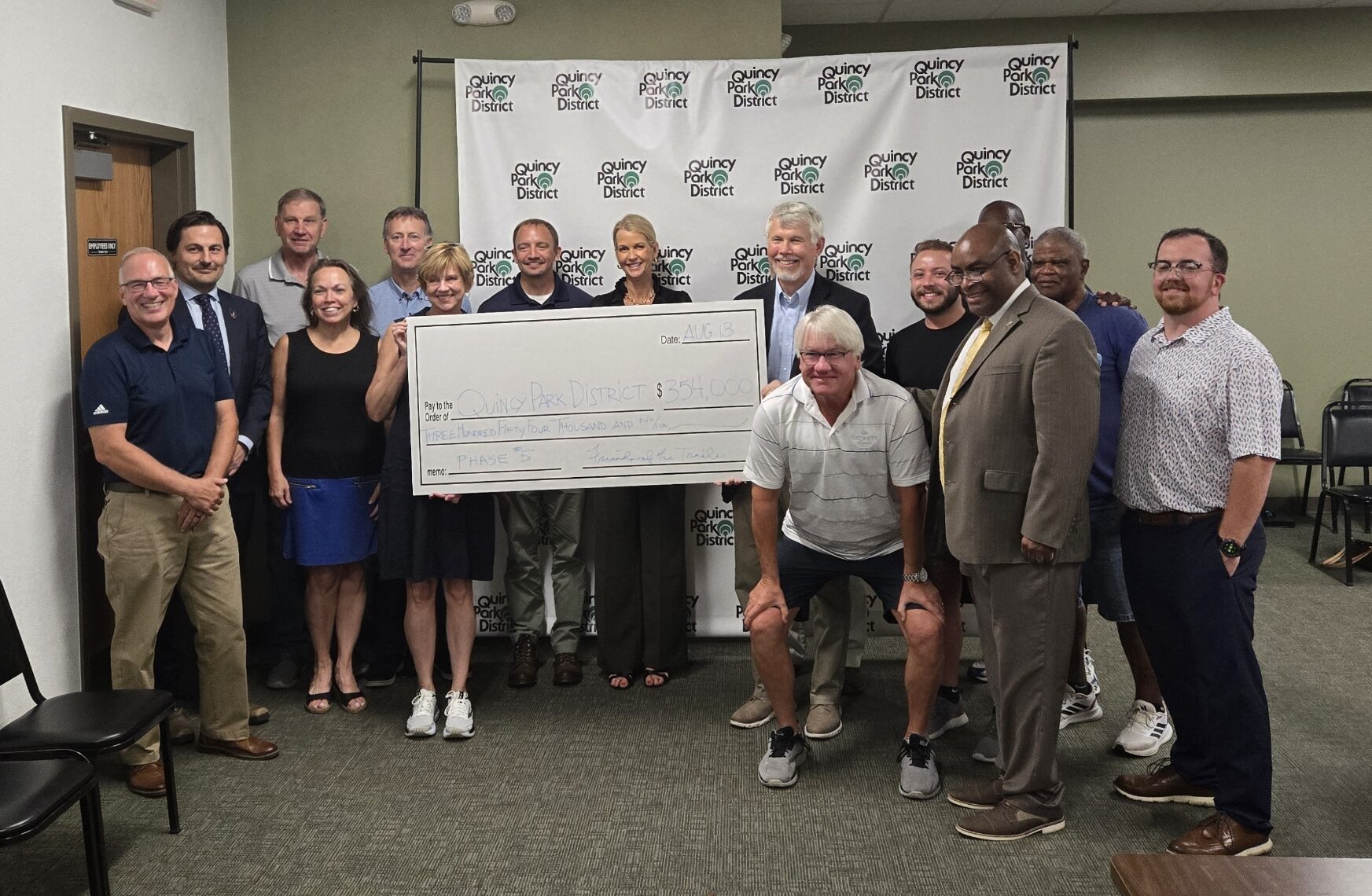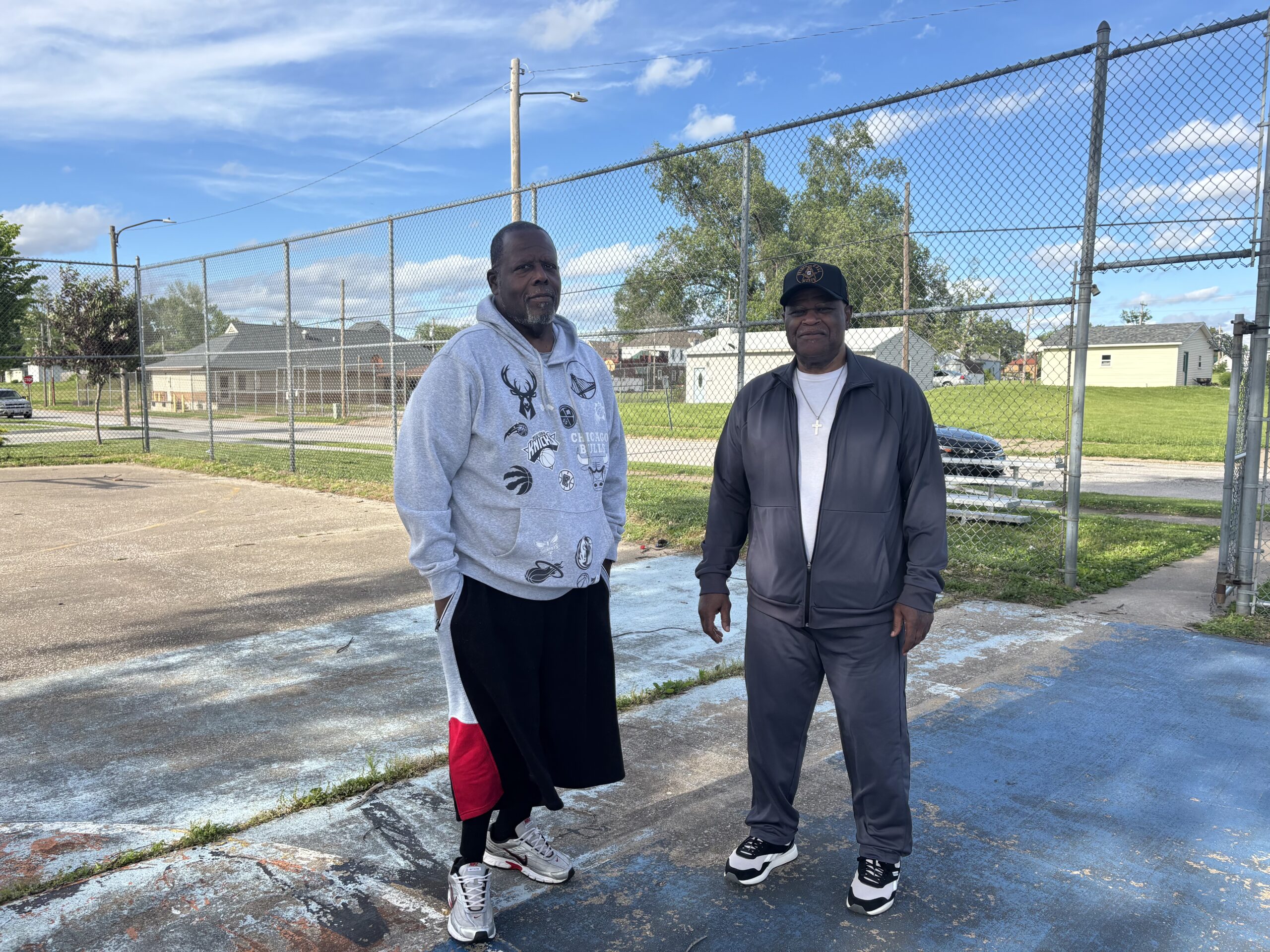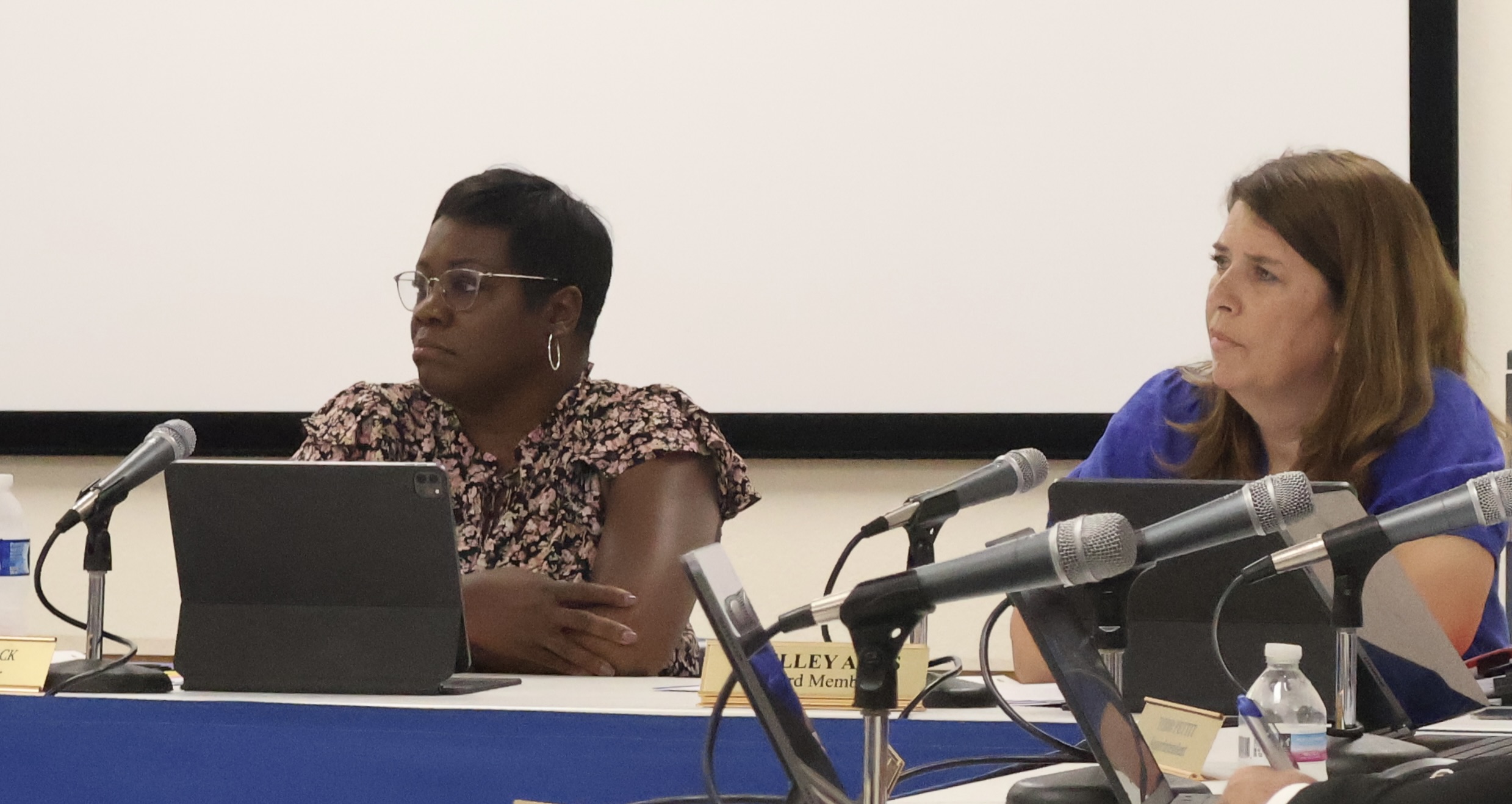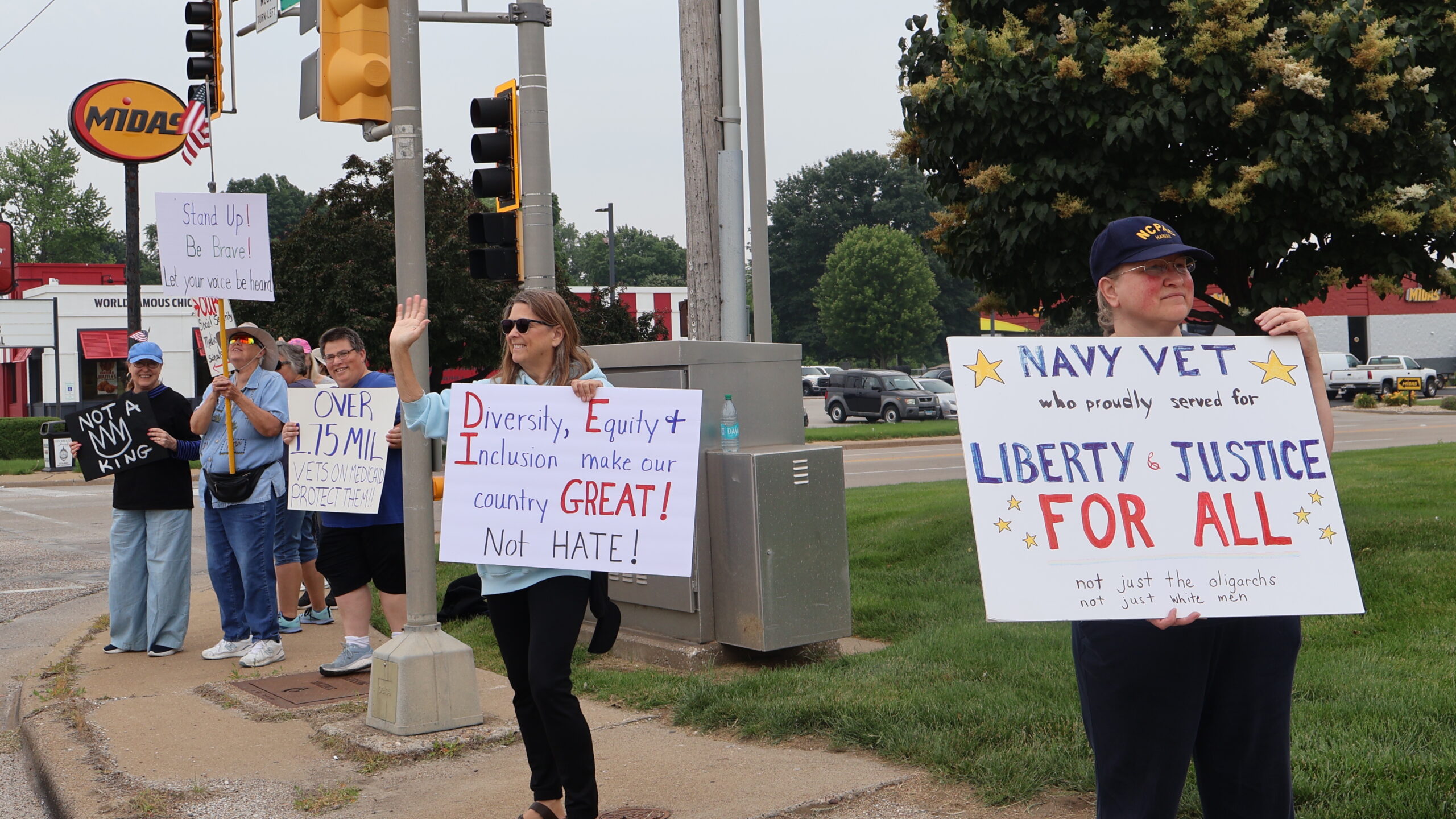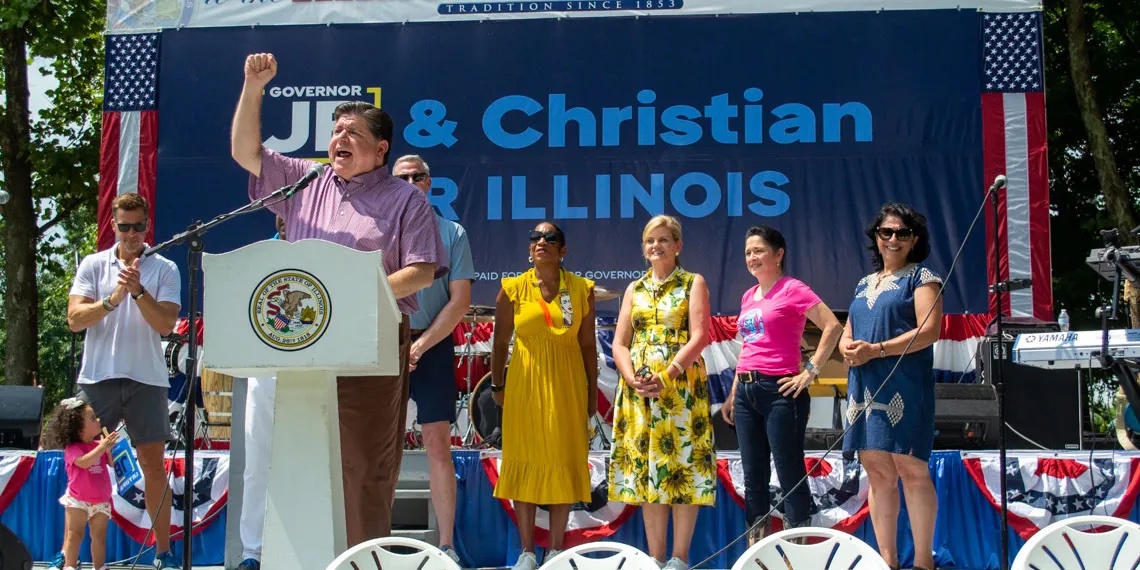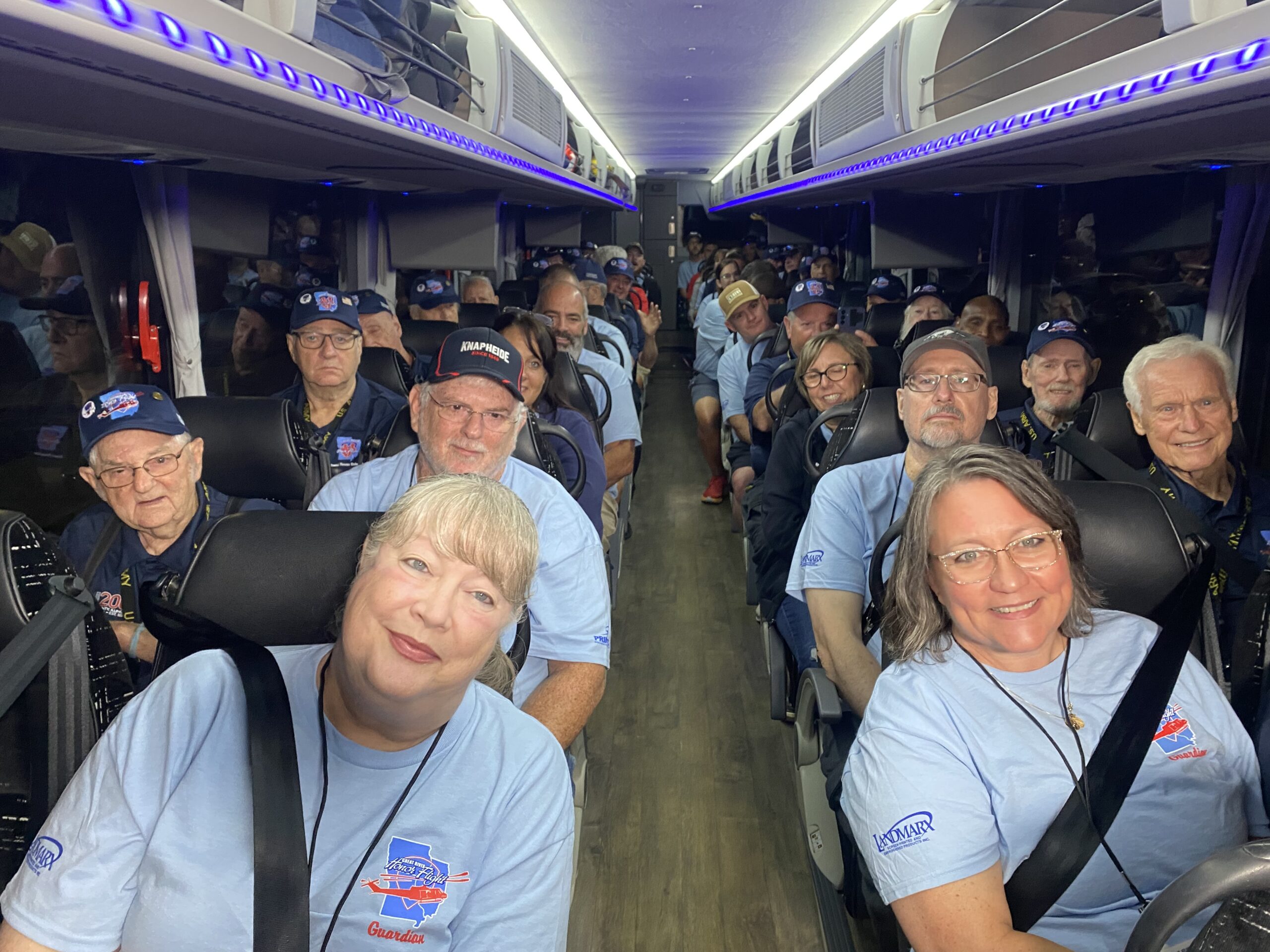Quincy The Quincy Park Board made significant progress in enhancing what board president Mark Philpot referred to as “one of the gems of the entire park system” with the assistance of the Friends of the Trails group.
The $354,000 cheque that Friends of the Trails gave the board at Wednesday’s meeting will be used for the engineering and design work on the Bill Klingner Trail segment that runs from Parker Heights to Lincoln Park.
According to Philpot, the park system is truly made up of its trails. We want to make sure it’s in the greatest possible condition, that it’s well-maintained, and that people can use it because many people from Quincy and the neighboring communities use it.
Philpot expressed gratitude to the Quincy Park Foundation and Friends of the Trails for their kind donations.
According to Philpot, those affiliates truly embody the essence of volunteerism for the park system. Without them, we couldn’t have completed this task.
Additionally, minor cost increases for the 2026 Pepsi Little People’s Golf Championships were accepted by the board. Rome Frericks, executive director of the Park District, proposed raising the $5 entrance price for the parent-child competition. The two-day and nine-hole competitions, which include practice rounds, will also see a $3 hike.
Additionally, Frericks provided the board with a request from Friends of the Lorenzo Bull House to build two slate easels in Lorenzo Bull Park, which was granted.
Following the meeting, Brian Earnest, director of business services, spoke about the recent decline in the park district’s revenue from personal property replacement taxes paid by the Illinois Department of Revenue. That amount dropped by 16.8 percent in 2023 and 41.3 percent the following year after reaching $1,793,641.12 in 2022. The district is expected to see another decline in 2025 since it has got $489,898.18 so far, which is less than 56% of what it received in 2024.
Due to an overpayment they made to all of the Illinois municipalities, we have been receiving less over the past two years, Earnest stated. They have been gradually regaining that. Instead of taking the money from us, they deduct it from newly deposited money.
According to Philpot, given the erratic nature of replacement taxes, the district strives to set its budget as cheaply as possible.
Because of this, some government agencies and localities spend more than they can afford, according to Philpot. We prefer to take the initiative in that regard. Since we are using government funds, we prefer to stay within our means. We want to spend it as efficiently as possible and obtain the most value since it’s the people’s money, not ours.
The state’s predictions, which are actually only estimates and far from final figures, will be taken into account by the district as it works up its 2026 budget in the upcoming months to decide how best to spend tax dollars. Additionally, the park district must account for the 8.11 percent of those replacement taxes that go toward pensions.
Earnest stated that we have no idea how much that sum will be. The estimations provided by the state are essentially just that—estimates. In that sense, we strive to be conservative because sometimes we get more and sometimes we get less.
However, given the time of when it receives the estimates, Earnest said the park district is in a favorable position.
Earnest announced that we were about to begin our budgeting session. We will begin working on the 2026 budget next week. We receive that information at a far better time than the city does because their fiscal year differs from ours, and they recently released the 2026 fiscal year PPRT estimates.
